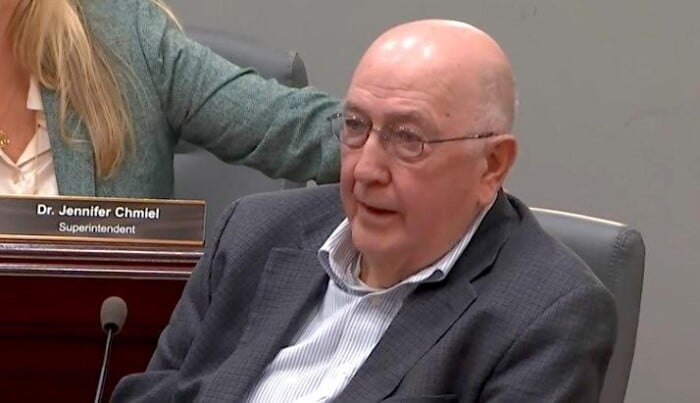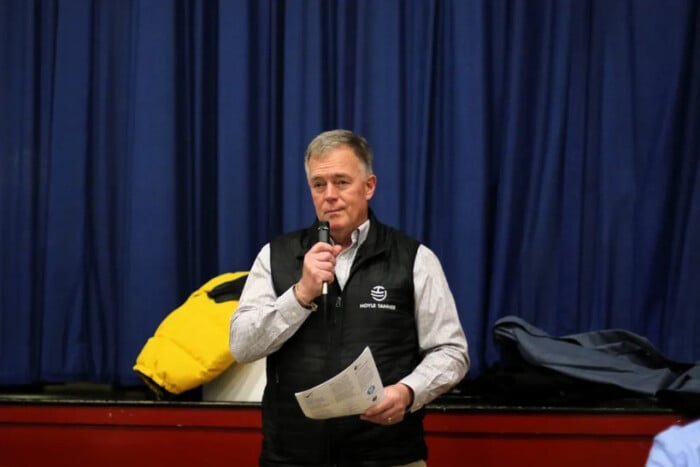Judge maintains decision on adequate school funding despite state motion to reconsider
Unless the NH Supreme Court stays Judge Ruoff’s order, the state must comply with the decision to increase base adequacy payments per pupil
After ruling in November that the state was failing to fulfill its constitutional obligation to fund an adequate education and administer the Statewide Education Property Tax (SWEPT) in a constitutional manner, Judge David Ruoff of Rockingham County Superior Court yesterday refused to reconsider or stay his decisions, tossing two hot potatoes into the laps of lawmakers.
In a suit brought by the ConVal School District, Ruoff held that the allocation of $4,100 per pupil to fund an adequate education falls far short of what the Constitution requires. Instead, he ordered that a minimum of $7,356.01 per pupil, or $537.5 million all together, is necessary to meet the state’s obligation while adding “the true cost is likely much higher than that.”
In asking the court to reconsider its decision in the ConVal case, the state argued it had breached the separation of powers by infringing on the prerogatives of the executive and legislative branches. While acknowledging the respective authorities of the other branches, Ruoff, echoing an opinion of the NH Supreme Court, countered that “the responsibility of the judiciary is to ensure that constitutional rights not be hollowed out” and again, citing the justices, concluded that “a judicial remedy is not only appropriate but essential.”
Ruoff denied both the state’s motions to reconsider and stay his order and directed the state to make base adequacy payments of $7,356.01 per pupil, which he called a “conservative threshold,” pending the outcome of an appeal or an act of the Legislature. In the meantime, unless the NH Supreme Court stays Ruoff’s order, the state must comply with it.
The second suit, filed by Steven Rand and five other property taxpayers, charged that administration of the SWEPT, levied at a uniform rate to raise $363 million, violated the constitutional requirement that taxes be equal in valuation and uniform in rate throughout the state. The tax is collected by municipalities and used to defray the cost of an adequate education.
In cities and towns with high assessed valuations, SWEPT revenue exceeds the cost of an adequate education. When the tax was introduced in 1999, the excess was remitted to the state and distributed among municipalities with lower property values. The most prosperous municipalities called themselves “donor towns,” balked at the “donor-receiver model,” formed the Coalition Communities and lobbied to do away with it.
In 2011, the Legislature entitled these municipalities to retain excess SWEPT receipts. When the Rand suit was filed, the state was joined by the Coalition Communities in defending the status quo.
Finding for the Rand plaintiffs, Ruoff ruled that, by retaining the excess, these municipalities were spared the full rate of the tax, in violation of the constitutional requirement that state taxes be equal in valuation and uniform in rate throughout the state. He noted his order mirrored past court decisions. He enjoined the state from continuing the practice “beginning with the budget cycle commencing in late 2023 and culminating with the budget votes” in March or April 2024.
Ruoff dismissed the state’s argument that enforcing his order and escrowing the funds would prove challenging to the Department of Revenue Administration (DRA). Unless the Supreme Court stays the order, the DRA will be bound to sequester and escrow the excess funds pending the result of the appeal process.
Attorney John-Mark Turner, representing the Coalition Communities, which joined the state in seeking reconsideration, refrained from challenging the legality of Ruoff’s order. Instead, as the judge rendered his remarks, he claimed it “will cause substantial hardship to those communities that have benefited from these unconstitutional practices for the past 12 years.” Turner argued the order would sow confusion among voters, disrupt local budgets and delay important projects.
Ruoff took him to suggest that “the mere fact that the plaintiff’s constitutional rights have been allegedly violated did not amount to irreparable harm.”
“The Court,” Ruoff wrote, “remains both unpersuaded and deeply troubled by the characterization of the plaintiffs’ injuries as a mere violation of their constitutional rights.” He went on to offer a reminder that the NH Supreme Court requires every practicing attorney to take an oath “to support the constitutions of New Hampshire and the United States.”
Ruoff also advised that “clarity of the relevant legal landscape should have inspired Coalition members to plan for the fiscal impacts,” since “the legality of the education funding system in the state has been questioned for at least the last 27 years, and the controlling legal principles are plain.”
Meanwhile, the House of Representatives will take a vote on HB 1686 this week, sponsored by Rep. Marjorie Smith (D-Durham), which would require excess SWEPT revenues be remitted to the state and deposited in the Education Trust Fund. The House Education Committee split 10-to-10 and will bring the bill to the floor without recommendation.
Should the bill carry the House, it will go before the Senate, where Senate President Jeb Bradley (R-Wolfeboro), whose district includes six towns belonging to the Coalition Communities, has said a return to donor towns is “off the table.”














